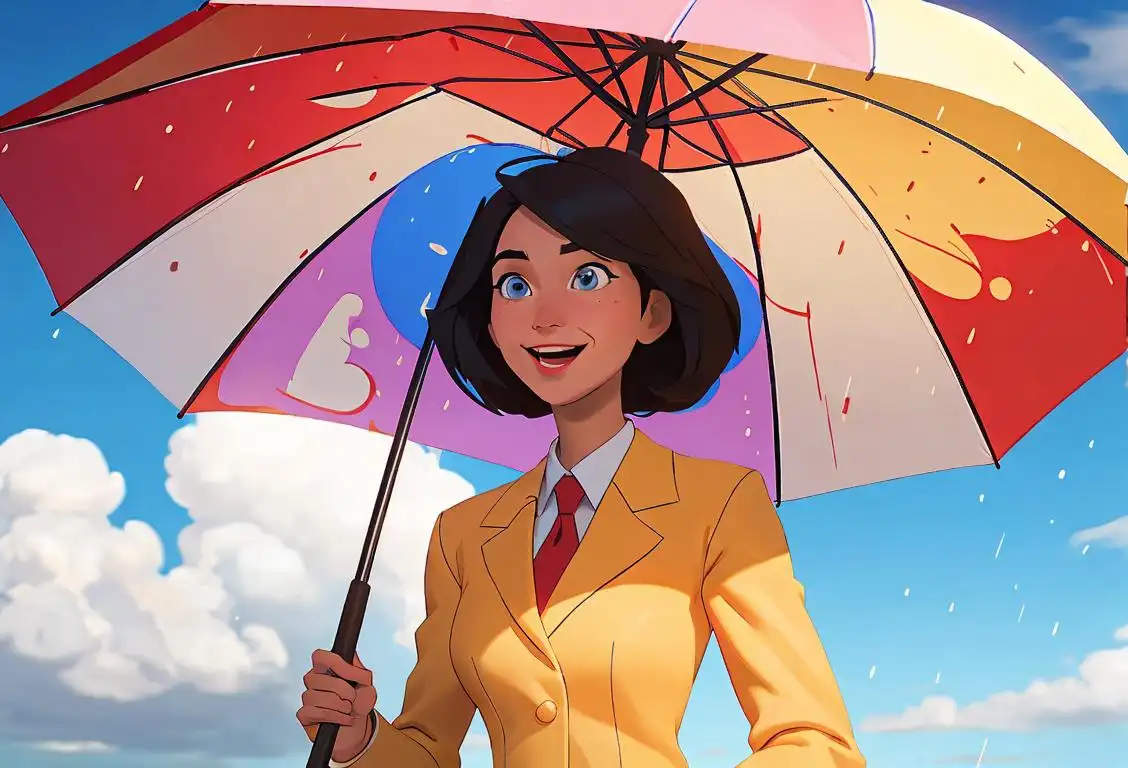National Drunk Day

Ah, National Drunk Day. A day where we celebrate...wait, what was I talking about again? Oh right, alcohol! Get ready to raise your glass and say cheers to this boozy national day! Whether you're a connoisseur of fine spirits or simply enjoy a casual drink with friends, National Drunk Day is the perfect excuse to imbibe and embrace the lighter side of life. So grab a drink, put on your party hat, and let's dive into the fascinating history of this merry occasion!
When is Drunk Day?
It's national drunk day on the 12th August.
The Origins of National Drunk Day
While the exact origins of National Drunk Day remain somewhat hazy (pun intended), its popularity exploded on the internet on August 12, 2017. With 45 mentions online, it's safe to say that people were excited to raise a glass and celebrate this playful national day.
A Celebration of Libations
On National Drunk Day, folks from all walks of life come together to commemorate the art of indulging in alcoholic beverages. Whether you prefer a refreshing beer, a classy glass of wine, a fancy cocktail, or a shot of something stronger, this day is all about enjoying the intoxicating flavors and camaraderie that comes with drinking.
From laid-back backyard barbecues to swanky cocktail parties, there's a celebration for every type of drink lover. Raise a glass in honor of National Drunk Day, and remember to toast to good times, good friends, and the joy that a little liquid courage can bring.
Remember, Drink Responsibly
While we're all for kicking back and enjoying a few drinks on National Drunk Day, it's important to emphasize the importance of drinking responsibly. That means knowing your limits, making sure you have a safe way to get home, and always looking out for your fellow revelers. So have fun, but remember to keep your wits about you!
History behind the term 'Drunk'
1297
The Early Years
The term 'drunk' dates back to the 14th century. It is derived from the Middle English word 'drunken', which means to be overcome or intoxicated by alcohol. During this time, alcohol consumption was a common practice, and being drunk was often seen as a social norm.
1540
The Renaissance Era
In the 16th century, the term 'drunk' gained popularity and began to be used more frequently in written literature. During the Renaissance era, alcohol consumption became an integral part of social gatherings and celebrations. Many plays and poems of this time featured characters and scenarios involving drinking and drunkenness.
1751
The First English Dictionary
The term 'drunk' gained further prominence in 1751 with the publication of the first English dictionary, Samuel Johnson's 'A Dictionary of the English Language.' This influential dictionary not only included the word 'drunk' but also provided its definition, solidifying its place in the English lexicon.
1920-1933
Prohibition and Bootlegging
One of the most significant turning points in the history of the term 'drunk' occurred during the era of Prohibition in the United States, which lasted from 1920 to 1933. The ban on the production, sale, and distribution of alcoholic beverages led to an increase in illegal alcohol consumption. This period saw the rise of bootlegging and secret bars, known as speakeasies, where people gathered to drink alcohol clandestinely. The term 'drunk' was commonly used during this time to describe individuals who indulged in these illegal activities.
1966
Blood Alcohol Concentration (BAC)
The concept of blood alcohol concentration (BAC) was introduced in 1966 by Robert F. Borkenstein. BAC refers to the percentage of alcohol in a person's bloodstream. This development allowed for a more scientific measurement of intoxication, replacing subjective judgments. The term 'drunk' began being associated with specific BAC levels, offering a clearer understanding of impairment due to alcohol consumption.
Present
Modern Usage
In modern times, the term 'drunk' is widely used to refer to a state of intoxication resulting from the consumption of alcohol. It has become a part of everyday language and is associated with various degrees of impairment, ranging from mild tipsiness to severe drunkenness. The term has also expanded to encompass the misuse of substances other than alcohol, further highlighting its role in describing impaired states.
Did you know?
Did you know that the term 'drunk' comes from the Old English word 'druncen,' which means 'to be overcome by alcohol'? It seems like even back in the day, people were finding creative ways to describe the joy of a good drink!Tagged
romance nsfw funFirst identified
18th March 2016Most mentioned on
12th August 2017Total mentions
45Other days
Aldub Day
Weatherpersons Day
Love Pizza Day
Kisses Day
Awareness Day
One Day
Children Day
Happiness Day
Opposite Day
Ojd Day









